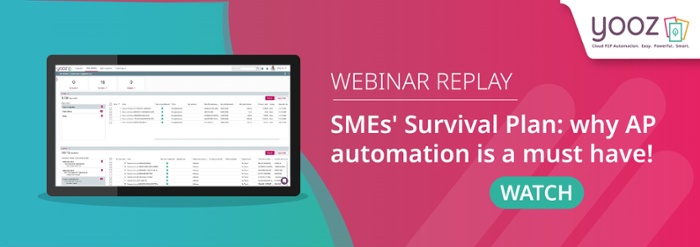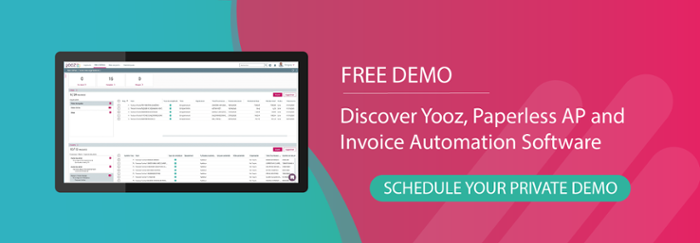Completing any construction project is like assembling a jigsaw puzzle; you select the right pieces to put in the right places to create a whole picture. That means that architects, engineers and professionals of many trades need to come together to make it happen. And regardless of the company size or whether the project itself is large or small, everybody will still need to stick to detailed plans, dynamically react to changes and solve unexpected constraints. Add in curveballs such as inflation, prices for supplies like lumber first skyrocketing and then plunging, or other job materials being in short term supply, and you get the picture.[1]
The State Of Automation in Finance 2024 - eBook
The bottom line is that a new building will only go up and be completed as planned if and when a lot of moving parts snap into place. To make this happen, information needs to flow freely between all the different parties involved and payments must be made on time in order to keep each module of the project going. That’s why the application of automation software - specifically Accounts Payable automation software - is so crucial for the building trade and all affiliated service providers.
In the construction industry, investing in a single, end-to-end Accounts Payable (AP) automation solution to improve the invoice process will save the entire team a significant amount of time and money, benefiting accounting to project managers and customers to individual vendors. It will help keep individual projects on track, provide information for ongoing planning and ensure that suppliers are paid on time. Managing all this not only ensures increased financial stability for the contractor but also builds their reputation and helps to establish important goodwill.
Unique challenges in Accounts Payable for construction
Why are there unique challenges when it comes to construction (and therefore in Accounts Payable for construction)? It's partially due to the fact that the industry comes with its own set of distinctive practices and challenges. For example, paying invoices in the construction Accounts Payable workflow is often linked to payments received for each individual contract. That means contractors don’t settle their bills until they receive payment from their customers. Delays or errors along this value chain can easily create a cascade of cash flow and revenue issues affecting multiple trades and suppliers. This is not an option if you want to be a success in the industry. In fact, this became such a serious problem that it led to the introduction in 2020 of the Small Business Commissioner and Late Payments Bill, specifically addressing late payments in construction.
However, most often, the tight interplay between inflows and outflows applies to direct costs for a project such as material, labour and equipment prices. Therefore, it’s important to always have an up-to-date view into your Accounts Payable status to make sure you maintain a positive cash flow and, equally important, turn a profit.
Retention is another issue that’s unique to construction. A contractor will routinely hold back a portion of the final payment for a defined period if the construction project is ongoing or until it’s almost completed. What is an insurance policy for one company, to make sure that work is done correctly and doors, windows, pipes or drywall are properly installed, can create a serious cash flow problem for others downstream. Retainage, therefore, is another good reason why all parties in a construction project need to keep tabs on their AP workflow in a traditionally cash-poor industry.
How AP automation streamlines construction projects
There’s one more notable argument as to why the Accounts Payable process in the construction industry needs to be digitalised and automated: lien waivers. These are legal documents signed in exchange for payment that waives the signer's right to file a lien for the amount specified in the waiver. It’s standard practice for a general contractor to request and collect such lien waivers from everyone involved on a construction site, not just subcontractors, but also materials suppliers and equipment rental companies. Whomever collects the waivers needs to track them and the amounts they specify.
With all these different (and crucial) things to track it's no wonder that construction companies of all sizes are using a powerful tool to help them manage tasks and save money at the same time. That tool is cloud-based AP automation; a way to capture, process and expedite the review, approval and payment of invoices. And not just that... Along the way, it helps with tracking and reconciling purchase orders, retention status and lien waivers as they come in from a host of suppliers and subcontractors. In addition, the software can generate comprehensive reports and provide the necessary information at any time, quickly and concisely.
However, having fewer worries about cash management is only one benefit. AP automation also creates notifications to ensure that you pay invoices on time, every time, keeping suppliers happy. Good supplier relationships are especially important nowadays, as ongoing materials shortages have made long-standing issues like theft and fraud only more pressing. When the supply chain is rattled, no one likes to wait for the bricks or rebar that are holding up completion, let alone chase outstanding payments to make payroll.
How does a Accounts Payable platform for construction work?
A system such as Yooz is capable of multichannel invoice capture, regardless of the format in which the document arrives: paper, fax, email attachment, or electronically. If we’re talking about batches of invoices, the software will also intelligently auto-split the documents. It’s one important step toward going paperless.
Once the expense information has been captured, Artificial Intelligence (AI) in the form of Robotic Process Automation (RPA) and Machine Learning (ML) algorithms will read and extract all key information from the invoices word for word, number for number. It will GL-code them and match each invoice to a PO or other relevant document, weeding out duplicates and erroneous submissions. Since it’s cloud-based, the platform has processed more than 100 million invoices from thousands of suppliers. This means that it’s able to decipher almost any invoice format as well as constantly learn and improve.
The end result is straight-through processing that requires little to no human intervention. And one more thing that’s worth mentioning: the software performs full-text indexing so inquiries and audits only require a simple keyword search. The days of digging through filing cabinets for an invoice or receipt are over.
| Unique Challenge | Description | Impact on Business |
| Cash Flow Dependency on Inflows | Payments in construction are often dependent on payments received from clients. Delays or errors in the value chain can create significant cash flow issues, affecting multiple trades and suppliers. | Can lead to financial instability, project delays and strained supplier relationships. |
| Retention Issues | Contractors often hold back a portion of payment as insurance until work is completed, which can create cash flow problems for subcontractors and suppliers. | Affects cash flow and can cause financial strain on smaller subcontractors. |
| Lien Waivers | Construction projects require tracking of lien waivers from subcontractors, suppliers and equipment rental companies. These legal documents are crucial for protecting against potential claims on the project. | Failure to track lien waivers can lead to legal issues and project delays. |
| Manual Invoice Processing | Handling large volumes of invoices manually is time-consuming and error-prone. Multiple channels (paper, email, fax, etc.) complicate the process, especially for companies handling a high volume of transactions. | Leads to inefficiencies, delayed payments and increased processing costs. |
| Fraud and Theft Concerns | Ongoing material shortages have made issues like theft and fraud more pressing. Manual processes are more susceptible to fraud, making the construction industry vulnerable to economic crime. | Increased financial risks and potential loss of materials or funds. |
| Regulatory Compliance | Keeping up with changing regulations, such as the Making Tax Digital (MTD) initiative, can be challenging without centralised and easily accessible records. | Non-compliance can result in penalties, legal issues and additional costs. |
On-site or off-site: AP automation offers mobile review and approvals
A key factor in the invoice approval process is of course, the approval. This involves routing supplier or subcontractor invoices to the right person which, thanks to the cloud, can happen from any device anytime and anywhere there is an internet connection. You can be sitting in a trailer on-site or standing high up on a scaffolding.
All the documents you need to make an informed decision to approve and pay or drill deeper are just a few taps away, based on workflow rules and permissions that each company can set up and adjust at any time according to their specific needs. Backlogs and delays are no longer an issue. Instead, processing costs per invoice drop and cycle times shrink from months or weeks, to days.
There’s more good news. With accounts payable automation for construction, late payments are a thing of the past and early-payment discounts are well within reach. Additionally, the number of exceptions due to missing data, as well as errors and fraud attempts can be kept in check.
As for reporting, a cloud-based system easily stores all of the information in one centralised location. No more sorting through various folders or programmes when it comes to tax time or audits; all the information is there and accessible. There is even an automatic digital audit trail. Both of these help stay in compliance with developing government regulations, especially those set out by the Making Tax Digital (MTD) initiative.
Next steps
These are just some of the reasons as to why a construction company should go for a modern AP automation platform as their foundation for further growth.
Ready to learn more?
FAQs
How can Yooz help streamline accounts payable processes specific to the construction industry?
How does Yooz address the complexity of managing multiple vendors and subcontractors in AP for construction?
Can Yooz help with compliance and lien waivers in accounts payable in the construction industry?
How can Yooz improve cash flow management in construction projects through accounts payable automation?









